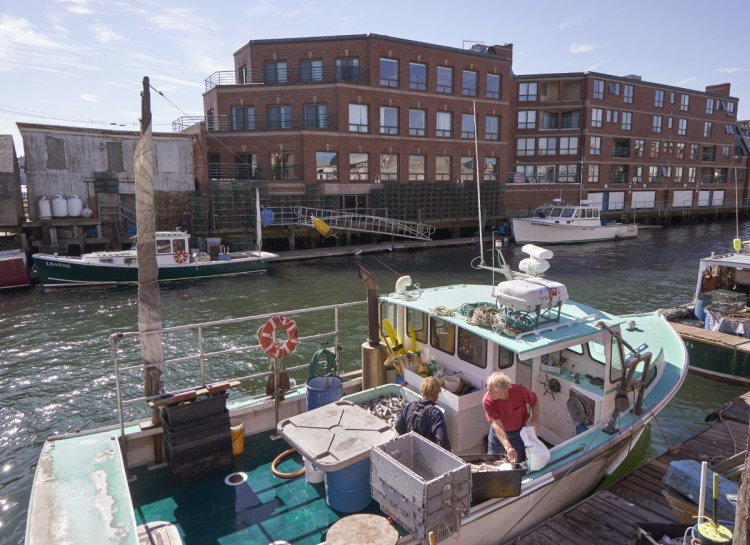The Portland City Council voted unanimously last week to halt development along the waterfront for six months. Now comes the hard part.
The city will convene a task force that involves many of the groups that have similar but not always perfectly aligned interests in how the city grows. If their concerns were easy to resolve, they wouldn’t need a moratorium. This process will continue a debate that began in the 1980s when advocates launched a successful working waterfront referendum campaign with the slogan “Keep the Port in Portland.”
Since then, waterfront zoning regulations have been revised to make sure that the city’s land-use policies are in line with the spirit of the original referendum.
One constant is the role of the fishermen, who are the canary in the coal mine when it comes to overdevelopment. By definition, their work depends on access to the water and when they feel crowded out, the city’s residents pay attention.
Also at the table, though, are the private owners of 12 wooden piers where the fishermen tie up. The pier owners are constantly balancing the fishermen’s needs with the costs of maintaining the century-old infrastructure and a harbor that is filling up with silt. They are supportive of the fishermen but are also concerned about getting enough revenue from other tenants to cover the cost of preserving their property.
Other interests include the businesses, like a marine mechanic or a lobster pound, that needs to be close to the water. The working waterfront is not a single entity but an ecosystem of various interests tied together by relationships. These ties are so important that the parties must be willing to compromise their own desires for the good of the whole.
Additionally, there are shops, restaurants and hotels on the land side of Commercial Street that service the people drawn there because they want to be near the working waterfront. The fishermen may wish that tourists and office workers would go somewhere else, but the city needs the economic activity they generate to pay for schools and other services. As the sea levels rise, there will also be needs for major infrastructure investment.
There is probably no outcome that gives everyone everything they want, but there may be a workable compromise to be found. Six months is not a very long time. We look forward to seeing what they come up with.
Send questions/comments to the editors.


